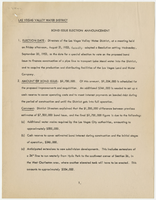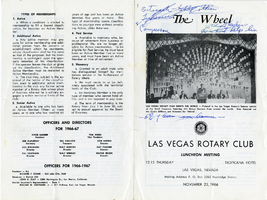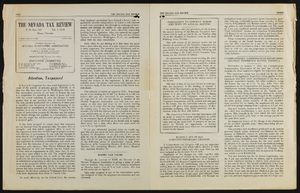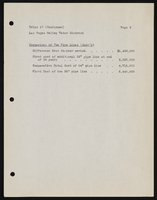Search the Special Collections and Archives Portal
Search Results

Bond issue election announcement by Las Vegas Valley Water District to eligible voters within district (Las Vegas), 1953
Date
Archival Collection
Description
Notice of special election for bond issue for the Water District including the reasons for the issue. Document includes information election date, amount of bond issue, voter eligibility, registration, purposes of bond issue, revenue, expenses, estimated water rates, financing, water consumption, and Lake Mead supply.
Text

The Wheel Las Vegas Rotary Club newsletter, November 23, 1966
Date
Archival Collection
Description
Text

Transcript of interview with Theresa Jones Denning by Lynn Kelstron Ballard, February 26, 1977
Date
Archival Collection
Description
On February 26, 1977, Lynn Kelstrom Ballard interviewed Teresa Jones Denning (born in Overton, Nevada in 1912) about her life in Southern Nevada. Denning first talks about her family background and her upbringing in Overton, including her life on a farm and her education in that small town. Denning also talks about her recreational pastimes before talking about the building of Boulder Dam and her life in Boulder City. Towards the end of the interview, she talks about her work as a driver for Las Vegas High School, her husband’s work on the Boulder Dam, and the changes in living conditions that she has noticed in Boulder City over time.
Text







